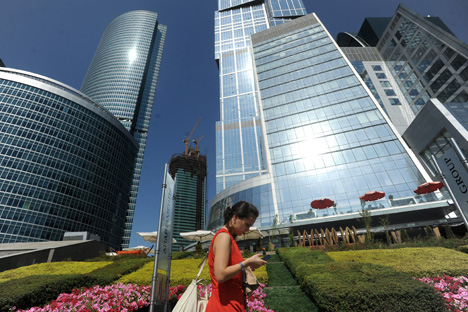Moscow most expensive for CIS office rental

Despite more favorable rental conditions in the other cities, Moscow tenants make longer commitments. Source: ITAR-TASS
If you are planning on opening an office in the former Soviet Union, consider setting up shop in Kiev, Astana or Almaty.
The rent will be the same as in St. Petersburg and much less than in Moscow, and you'll probably pay less for the fit-out work, according to a recent study by Jones Lang LaSalle.
The study compared office rental markets in Moscow, St. Petersburg, Kiev and the Kazakh cities of Astana and Almaty. Moscow's office rental prices were almost twice as high as those in the four other cities, reaching an annual $1,200 per square meter per year for premium-class space. In the other cities, the rates were relatively similar to each other, with premium-space costs ranging from $420 to $550 per square meter annually.
"The most moderate rents are in Kiev and Almaty, while the most expensive ones are in Moscow," said Alexei Yefimov, director for Russia and CIS at Jones Lang LaSalle. "This is due to the size of each city, the market and the demand."
To add to the already high prices, Moscow offices frequently require more extensive final renovation work, at an average cost of $700 to $1,000 per square meter.
In St. Petersburg, renters are more likely to be able to negotiate discounts on fit-out work, which usually doesn't cost more than $700 per square meter. Kiev offices tend to require less preparation, and the cost of work that is required averages $400 to $700 per square meter.
Despite more favorable rental conditions in the other cities, Moscow tenants make longer commitments, according to the study. Rental agreements in the capital average five to seven years, while in the other cities this marker is not more than five years.
Moscow contracts are longer because the developers and investors usually have a long-term strategy, Yefimov said. In contrast, building owners in the other cities prefer short-term contacts in the hope that they can later attract a higher bidder for the same property.
First published in The Moscow Times
All rights reserved by Rossiyskaya Gazeta.
Subscribe
to our newsletter!
Get the week's best stories straight to your inbox